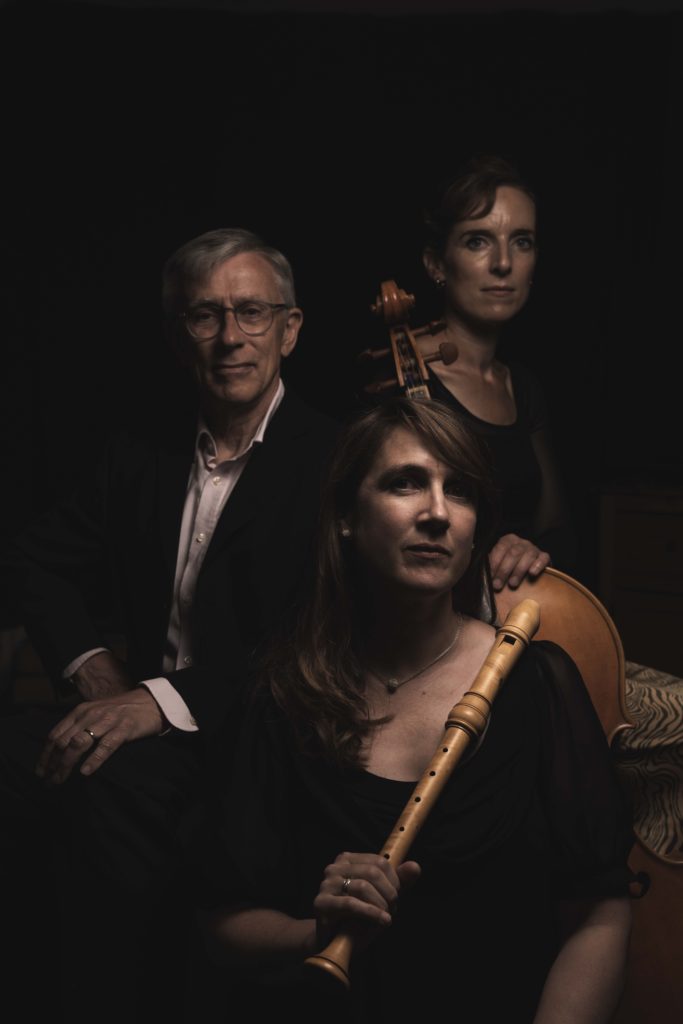
York Early Music Christmas Festival: Baroque In The North, National Centre for Early Music, York, last Saturday
THE concert programme description was headed Panettone or Bûche de Noël. Now as we know, the Panettone is an Italian sweet bread or fruitcake and Bûche de Noël (also known as a Yule log) is a traditional French Christmas cake.
The underlying theme of this delicious programme was the creeping influence of the Italian Style sweeping through Europe on a stubbornly resistant French musical style. Very tasty.
The recital opened with Baroque In The North players Amanda Babington (violin), Clare Babington (cello) and David Francis (harpsichord) performing Michel-Richard Delalande’s Or Nous Dites Marie. This is a sweet traditional French Christmas song and proved to be a musically courteous welcome.
Joseph Bodin de Boismortier’s Trio in E minor (op 37 no.2) is clearly influenced by the ‘Italian’ trio sonatas. I could hear the influence of both Corelli and Vivaldi in the performance. But it is also distinctly French, for example the rich harmonic language and characteristic French melodic lines.
The playing radiated charm as well as displaying considerable Italianate agility. But the performance also hinted at tensions between the instruments and the environment: the tuning, particularly in the closing Allegro, was not always dead centre.
This was to play out quite theatrically when Amanda Babington swapped the violin for the cutest of French bagpipes, the musette, in the performance of Esprit Philippe Chédeville’s Sonatille Galant no.6.
Just as the fortunes of the instrument itself – which had a deliciously spooky nasal quality – rose and fell with the heads of the 17th and 18th century French aristocracy, so too the fortunes of the musette’s intonation seemed to be at the mercy of the environmental conditions.
Remarkably, instead of hurling the thing across the room as most of us might have been tempted to do, Ms Babington incorporated, transformed the tuning adjustments into theatre. And still delivered a tremendous, insightful performance.
Anyway, it was time for Ms Babington to take a well-earned break, which duly arrived in the form of Vivald’s Cello sonata in G minor. Clare Babington (cello) teased out a brooding melancholic quality in the opening Preludio, which then seemed to infuse the following reflective Allemanda.
The emotional core of the Sonata is very much with the Sarabanda, where highly ornamented, expressive melodic lines enriched the engagement. The role of the harpsichord here is to underpin the singing cello with ever-changing harmonic support.
Not so in the concluding Giga, where both performers clearly relished the crisp vitality of the music. The cute, punctuated signing-off was a delight.
Corelli’s Sonata IV op 5 welcomed back Amanda Babington to the stage, this time armed with a well-behaved recorder. Her performance was breath-taking. The Adagio(s) sang beautifully; the Vivace was full of warmth and wit. I particularly liked the charming, crisp musical chat between the instrumentalists in the Allegro(s). But the musical narrative was recorder-driven; exhilarating stuff.
Claude Balbastre’s La Berryer ou La Lamoignon gave harpsichordist David Francis his moment in the spotlight. The music again blended the Italian and French styles but here the brew was a slightly whacky one. Great tunes, tender moments contrasted with sudden explosions of energy and tempo. Dramatic, eccentric, and ever so gently bonkers. The playing was hypnotic.
The concert closed with two works by the Chédeville brothers, Nicholas and Esprit Philippe. Joseph Est Bien Marié (Esprit Philippe) was a lovely finale, not least as it had a fitting retreat from the stage of the truculent musette. But not before leaving a lasting impression of an adolescent rebel refusing to bow to polite performance convention in ‘Scarlatti’s’ Sonates pour les Clavecins.
Despite the repeat retuning, with David Francis ‘taking bets on the outcome’, the performance was terrific. I’m sure Monsieur Chédeville would have agreed; Senior Scarlatti might have been somewhat perplexed.
This was an eventful, brilliant and utterly rewarding concert, and one further enhanced by the quirky, informative insights shared by Amanda Babington throughout the programme.
Review by Steve Crowther
